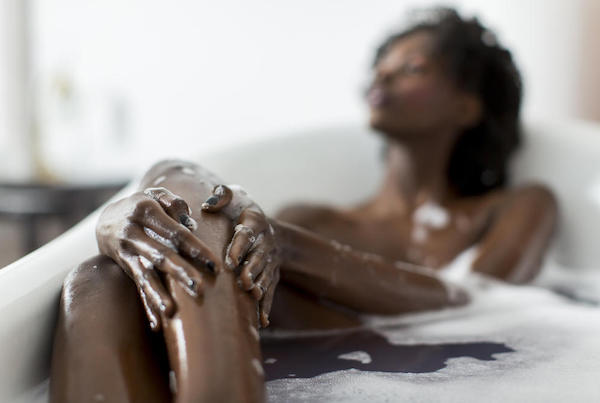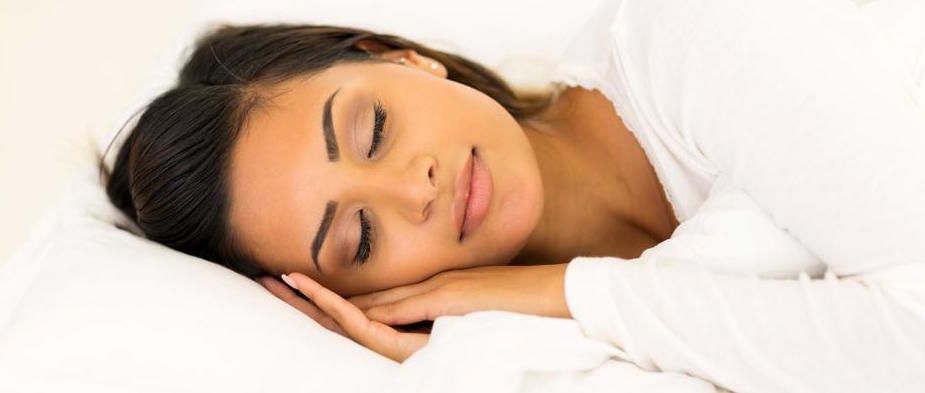Do you struggle to fall asleep on a nightly basis? Constantly waking up several times through the night and finding it difficult to fall back asleep? No matter how late you stay up, are you still wide awake well into the early hours of the morning?
Anybody who has ever had insomnia or other similar sleep disorders can relate to the above issues all too well. It can be mentally and physically draining being unable to fall asleep easily day after day. The long-term effects that come from sleep deprivation can indeed take a devastating toll.
If you’re currently dealing with insomnia and struggling to fall asleep and stay asleep, take heart in the fact that you aren’t alone. You can beat this condition, as many others have before you.
To help you out on your journey to overcoming insomnia, we’ve put together 10 of the best ways to help relax your body and ease you into a restful night’s sleep.
If you regularly find yourself in bed at night, wide-eyed and staring at the ceiling, put these tips and tricks to good use, and you should see some definite improvements!
How to Get to Sleep Fast
1. Take a Relaxing Hot Bath or Shower Before Your Bedtime
One of the best ways to relax and unwind after a long and stressful day is by taking a nice hot bath or shower. The hot water will cause your temperature to rise and then begin to cool down again once you’re out of the bathroom.
As your internal temperature gradually lowers, it produces a pleasantly relaxing effect. If you can raise your internal body temperature by even just a couple of degrees, the steep drop afterwards can help to put you into a deep, restful sleep.
If you’re going to attempt this approach, make sure that you schedule your shower or bath for around two hours before you hit the sack for optimum results. If you raise your body temperature too close to bedtime, it can hinder your efforts to fall asleep.

2. Keep your room pleasantly temperature cool
As we mentioned above, going to bed with your body temperature elevated can make it more difficult for you to fall asleep and enjoy a deep sleep once you do. The whole point of the hot shower or bath strategy is to force a sudden decline in body temperature intended to promote relaxation.
An alternative approach to cooling your body temperature is to keep your bedroom pleasantly cool.
You can accomplish this by keeping a window open, using an air conditioner or fan, or even by sleeping nude or with minimal amounts of clothing. Whatever you find most comfortable is the method you should go with.
The critical thing to keep in mind is that a lower internal body temperature promotes deep, relaxing slumber and even increases melatonin. However, this mainly applies to your core.
Keeping your extremities slightly warm may give you an added benefit when trying to fall asleep. It might be worth your while to try keeping your socks on when going to bed in that case if you’re still having trouble after cooling off your bedroom.
3. Keep your bedroom completely pitch black at bedtime
We are living in an era of unparalleled convenience and entertainment. To that end, our bedrooms usually contain several different sources of blinking lights and electronics.
The red dot glow of a television that is turned off, the bright light from your alarm clock, even your computer screen saver—all of these things are detrimental to your sleep hygiene.
Light sources in your bedroom, while you’re trying to sleep, do two things that contribute to your insomnia issues: They lower the amount of melatonin that your body produces while raising your cortisol levels. Both of these occurrences can be severely disruptive to your natural sleep cycle.
It’s far easier to fall asleep in a room that’s bathed in complete darkness. This helps promote the optimal release of melatonin, letting you enjoy a deeper and more restful night’s sleep.
4. Try the 4-7-8 breathing exercise
This breathing technique aims to relax your body and assist you with drifting off into a high-quality restful slumber. It’s an exercise that’s been adopted from yoga practitioners, and it’s also commonly referred to as the “Relaxing Breath.”
To do the exercise, you should sit with your back completely straight. Next, place the tip of your tongue against the roof of your mouth, just behind your upper front teeth. You will remain in this position and exhale through your mouth, around your tongue.
Now, breathe out completely through your mouth. If done correctly, it should make a sort of “whooshing” sound. Close your mouth, and gently inhale through your nose, counting to four.
Next, hold your breath while counting to seven. Finally, exhale once more through your open mouth, making the whooshing sound, to the count of eight. Repeat this process three more times for a total of four cycles of 4-7-8.
It’s recommended to practice this exercise at least twice a day until you get the hang of it. Once you master it, the 4-7-8 breathing exercise is an invaluable tool to help you fall asleep.
5. Exercise for 30-60 minutes in the late afternoon or early evening
A regular exercise routine is something that everybody should be doing. It provides many great physical and mental benefits. Most importantly for anyone who has insomnia though, exercise can be a great tool to help you fall asleep at night.
The best time for exercise if you want to use it as a sleep aid is either the late afternoon or early evening. The reason behind this is identical to why you should take a hot shower or bath a couple of hours before bedtime.

Vigorous exercise will also raise your body temperature during your workout, and it will then gradually cool down in the hours afterwards. As discussed above, this produces a relaxing effect on the body that helps to put you into a deep sleep.
For maximum effect, why not combine the two? Spend 30-60 minutes doing an intense exercise routine and then take a nice hot bath afterwards to relax your muscles and unwind.
6. Listen to some relaxing music or sound effects
Many people find that by listening to soothing sound effects or songs designed to help you relax, they can fall asleep quicker and also enjoy a much deeper sleep.
We’ve been exposed to this fact ever since birth, as many parents sing calming lullabies to their babies to help them fall asleep in their cribs. The truth is that we can benefit from a relaxing melody before sleep at any age.
There are a few reasons why music may help you to sleep better. One reason is that music helps to release “feel-good” chemicals in your brain, which help you to feel more relaxed.
Certain types of music can even have actual physical effects on you as well, such as slowing your breathing and lowering your heart rate.
If you find yourself tossing and turning in bed at night, why not try out listening to some relaxing tunes at a low volume? It doesn’t even have to be music explicitly designed as a sleep aid; even your favourite playlist could prove beneficial when it comes to helping you fall asleep!
7. Turn off all of your electronics at least 60 minutes before bedtime
One of the leading causes contributing to sleep deprivation in this day and age is an over-exposure to electronics and bright screens. Not only are the bright lights emitted by the screens of electronic devices harmful when it comes to falling asleep, but the stimulation provided by using them doesn’t help matters much either.
It goes back to the point above about keeping your room completely dark when falling asleep. If your eyes have been glued to a bright screen all night, once you finally do head to bed your brain will have been tricked into thinking it’s still daytime out due to the light exposure. This is turn prevents adequate melatonin release.
So if a good night’s sleep is your objective, do yourself a favour and turn off the TV, computer, and phone at least one hour before you are going to sleep.
If you can’t manage that, then at the very least you should consider specially-made glasses or certain apps designed to reduce the brightness of your computer or smartphone screen such as flux.
8. Make a to-do list for the following day
A common reason why many individuals end up struggling to fall asleep is that their minds are filled with anxious, racing thoughts about their responsibilities that await them once they wake up the next day.
We’ve all been there before, tossing and turning all the while dreading something we have to get done in the following days.
To help combat this anxiety, it’s beneficial to grab a pen and paper and physically (no typing allowed!) write out a to-do list for the following day, or even several days ahead.
This can help you to narrow down what needs to be accomplished and serve as a “brain dump,” getting it out of your head and onto the paper instead.
As an alternative, instead of writing out a to-do list, many people also find it beneficial to write out their worries completely. This serves much the same purpose as the to-do list in that it takes the concerns out of your mind and transfers them onto the pad of paper.
If you find yourself wide awake at night and worrying about something that you have to take care of during the following day, why not give this method a try?
9. Do a light activity such as reading before going to sleep
Instead of spending your time staring at an electronic device before going to bed, why not pick up a book or do some other light activity for a half hour or so? Whatever activity you find most enjoyable and relaxing can work here.
Reading a book is one of the best ways to wind down after a long day before you go to sleep. It will help to relax and ease your mind, making the transition to slumber easier for you. And just like lullabies, it’s something that we’ve been using ever since we were kids. Parents all over the world make it a point to read bedtime stories to their children before bed.
Skip the late-night TV and internet browsing on your phone when you’re lying in bed; pick up a good book instead. You’ll be glad you did once you see how much easier it is to fall asleep!
10. Get up and do something else
If all else fails and you’re still stuck in bed, tossing and turning, then get out of bed for 10 minutes and do something else. Studies have shown that you’re far more likely to end up falling asleep if you go and distract yourself briefly as opposed to lying in bed and worrying about not being able to fall asleep.
It doesn’t matter what you do (so long as you don’t go and switch on the electronics, that is) so long as you get out of bed and take your mind off of your inability to sleep.
It could be something as simple as going to the kitchen for a glass of water. Or you could sit on the sofa and read for 10 minutes. Just do something besides tossing and turning in bed!
Conclusion
There’s no denying that insomnia is a sucky thing to have to deal with. There are few things in life more annoying than lying in bed and being unable to fall asleep for hours.
Hopefully, by applying the methods on this list, you’ll be able to improve your ability to fall asleep in the evening gradually, and with practice, be ready to fall asleep much quicker than you ever were able to before.

